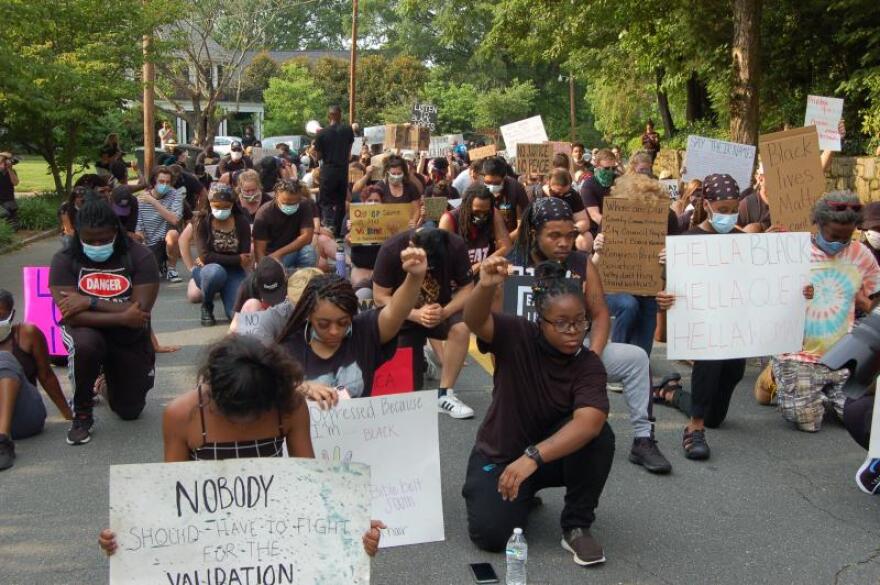Even in the midst of a still-raging pandemic, and with a historic national election less than 100 days away, Black Lives Matter and the daily protests it has inspired continues to dominate the news cycle. What makes this movement so unique? For answers, WFDD's David Ford spoke with UNC-Greensboro Associate Professor of History Mark Elliott whose research ranges from civil rights to reconstruction.
Interview Highlights
On the long history of protest in America:
The nation was born in part of a protest movement, you know. ... You can look at The Boston Massacre and say, well look, what happened, the British Red Coats shot on protesters who — even though we know that they were taunting them and throwing rocks at them — they were unarmed. And this led to galvanized support for what they stood for and what they were protesting about across the colonies. So, the nation was born in sort of unified support of people protesting for their rights against what they perceived to be the unjust policies and also unjust policing basically of them.
On what makes today's Black Lives Matter protest different:
Well, the size of the protest is enormous. It's global and certainly social media has a lot to do with that. The viral videos are crucial to gaining support and the amount of people who are experiencing the injustice that they're talking about. So, people can feel this in a visceral way because now it's not just the news camera, it's the everyday person with their phone.
When the movement began following the police killing of 18-year-old Michael Brown and the resulting Ferguson riots of 2014, the words "Black Lives Matter" were controversial:
00000197-bf20-d6ca-a9f7-ff7e9cdb0000 Mark Elliott is UNC-Greensboro Associate Head of the History Department and Associate Professor of History. Photo credit: Janet Howard. There was a lot of denial, and a lot of people rallying to the police. But since then, it's been seven long years of a lot of videos and a lot of evidence to the contrary, and you know, incident after incident which seems to have worn down the opposition in my view. It's almost like the floodgates have finally busted open and there's acknowledgement that this is a problem that has to be corrected. Something needs to be done about it.
On where the movement goes from here:
We don't know yet. Because behind police brutality, you know, there is mass incarceration, there is the entire criminal justice system having white privilege skewing the indictments. So, there's a lot more to be done, there's a lot more to be addressed. ... But this is such a decentralized movement. It's so much based on local leaders, social media, you know. It's much more democratic in that sense in the way that it's run, and I think that's going to be advantageous. I really do, because I think that it makes it much harder to take down.

